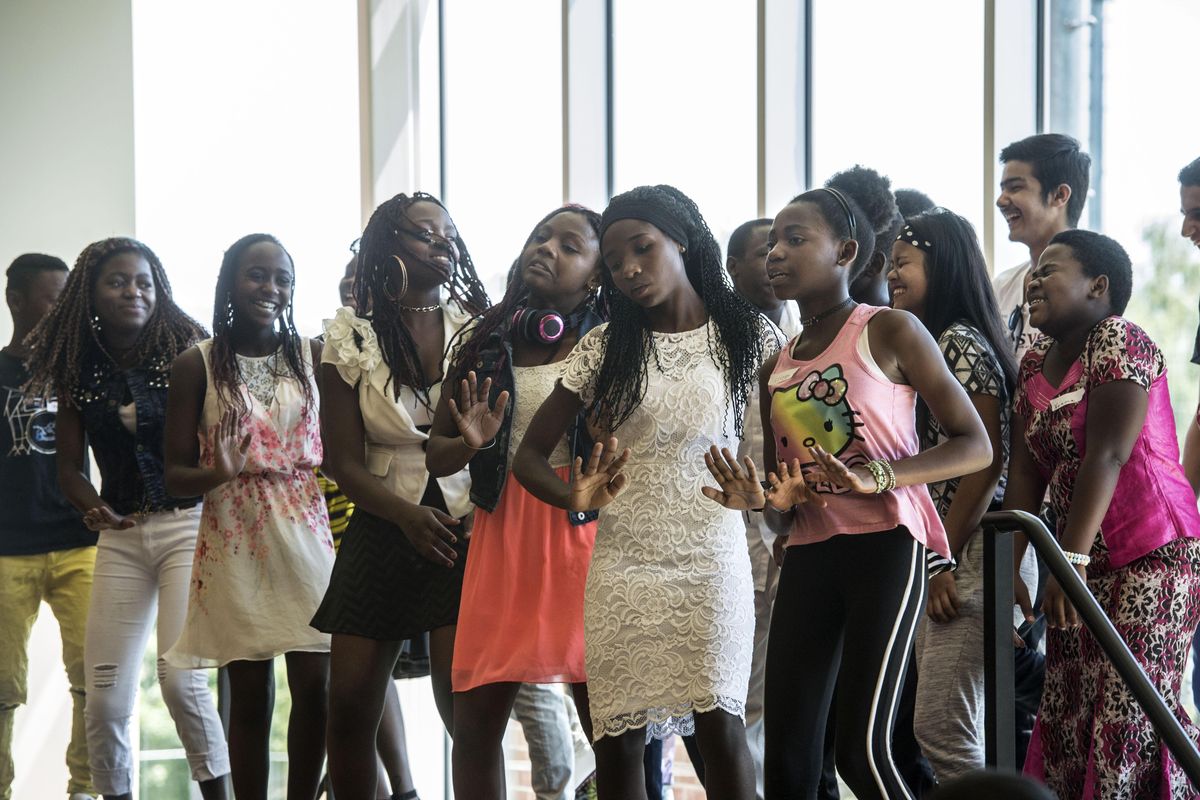Gonzaga language program for ESL students grows in popularity

The view on Gonzaga’s campus Thursday was your typical camp scene. Dozens of teenagers chatted as they streamed past a gaggle of third-graders, who were cheerily singing a camp song under the guidance of their counselor before heading off to tie-dye T-shirts.
But this camp’s mission is more than just fun. For the past 19 years, the Gonzaga Summer Language Program has been working with children, teens and adults from immigrant and refugee communities on conversational English-language skills and career planning.
Having begun in 1999 with eight students, the Summer Language Program now includes hundreds of participants and sees enough demand to require a cap on registration. Over the course of the three-week program, which is free for participants through a combination of grants, student teachers instruct students from 50 nations whose language skills can range from non-English-speaking to second-generation immigrants looking to pick up more colloquial phrases.
For many, learning English is hard enough, but the reality of life as a refugee brings its own challenges, said Erin Meuer, a teacher with the program.
“It’s more than just teaching English,” Meuer said. “We also act as social workers for these kids.”
Whether it’s keeping lights off in the classroom or checking schedules to avoid passing by loud construction, teachers – who have their own classes in the morning on working with potentially traumatized children, as well as on English-language instruction – must navigate a series of potential concerns to create a safe and productive learning environment, Meuer said.
To children who have fled war zones and instability, the boom of a bulldozer may be the blast of a mortar shell, and schools may be associated with the recruitment of child soldiers rather than safety and learning, she said.
The camp’s efforts have been shown to work, with kids speaking four times as much as they would at school, she said.
Recently, a new challenge for language teachers is that an increasing number of the children who arrive at the camp are deaf, Meuer said.
As a result of the Trump administration’s focus on immigration and refugees, Meuer said, the camp has received more active support from its partners and the community. Actions by the administration to limit resources for migrants and refugees have led the camp to launch a new resource fair for parents. At the fair, parents can access food bank resources and aid from immigration lawyers while their children learn, she said.
Aaron Townsley has taught students how to drive, and he taught his cousin how to fix his truck, but teaching students English is new to him, he said. In charge of some of the 10th- through 12th-grade students, Townsley said the focus of classes has to be on conversational English, not just what you get from a textbook.
Townsley, who is working on his ESL teaching certification so he can teach English somewhere in Asia, said different students struggle in different areas when it comes to acquiring English skills. Some students have verbal fluency in English, but they have difficulty associating the spoken language with the written word; others look to Townsley to improve their pronunciation, he said.
In addition to English, classes are also lessons in American culture. On Thursday, high schoolers as young as 15 paraded through a career and college fair – comprising traditional four-year universities like Whitworth University, community colleges and apprenticeship programs – and met with recruiters. Certain behaviors that are important in “selling yourself” in America, like making eye contact and self-promotion, may not be common or even approved of in some of the cultures students grew up in, Meuer said.
“Many of these kids are also just surprised to hear that these colleges want students like them,” Meuer said. “Not only do they want them, they want them badly, and the richness they can bring.”
Townsley agreed. He was working on creating resumes with his high schoolers, and he said several were excitedly telling him about their dreams of becoming doctors or nurses, and even about big dreams like playing World Cup soccer.
Myo Myo Aye and Khim May, two Lewis and Clark High School students from Thailand, visited every booth at the fair together and chatted about them over cookies and juice. The second summer at camp for Aye, and the third for May, the girls were almost as excited at the prospect of attending college as they were to see their camp friends.
While May isn’t sure what she wants to study, Aye is thinking about studying business so she can open a restaurant that would sell a variety of Asian cuisines.
“I love to cook in the kitchen,” Aye said. “Well … sometimes.”
For the past three years, the Summer Language Program has incorporated STEM into its English-language curriculum, and donors have provided funds for special topics like video editing and engineering design.
Adam Sidiq, another Lewis and Clark high schooler from Sudan, said he loves coming to learn at the camp. A returning camper with big dreams for college, Sidiq sat in his sharp, black suit looking over notes before entering the fair.
“I just love it,” he said, a little bashfully. “Everything, everything.”